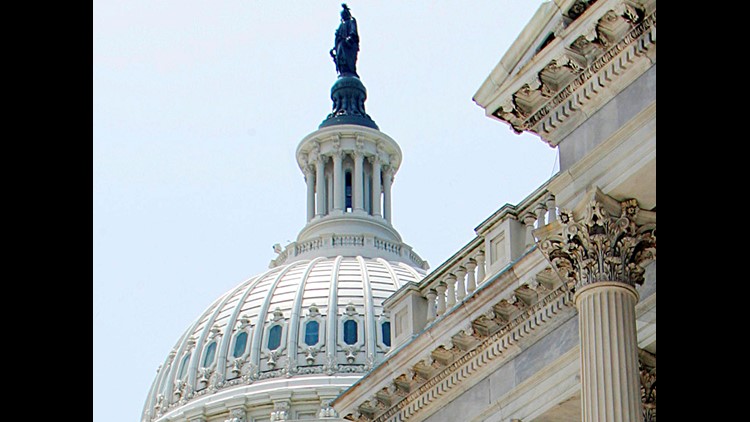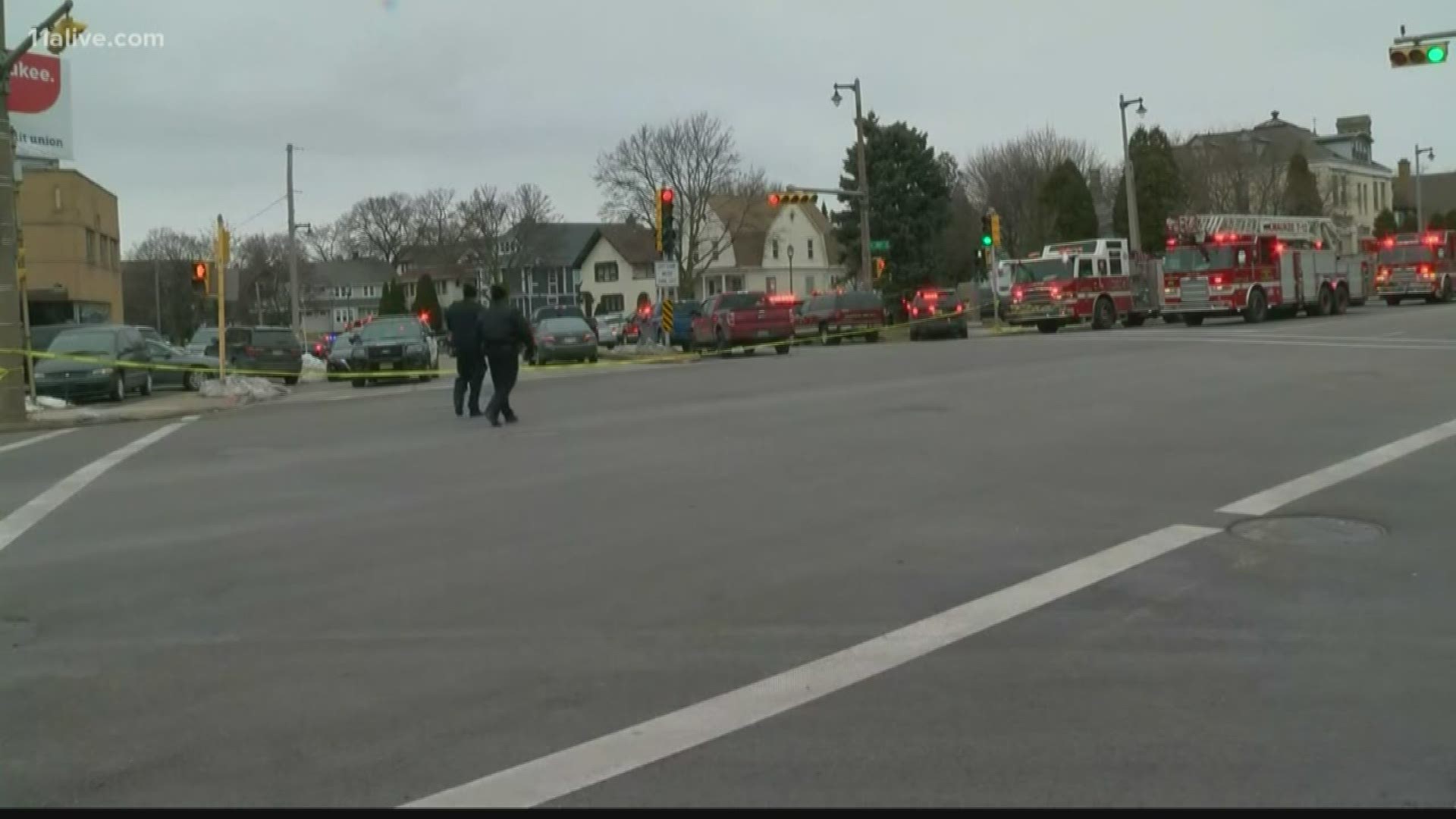WASHINGTON - The Department of Homeland Security appeared headed for a partial shutdown at midnight Friday as House leaders failed to garner enough votes to pass a stopgap measure to keep the agency funded for three more weeks.
The vote was 203-224 to pass the short-term measure. Leaders could not get the 217 votes needed to pass the bill and keep the agency funded through March 19.
About midway through debate in the House on Friday, it became clear that Republican House leaders were scrambling to attract enough votes from their own GOP caucus to pass the bill. Democrats voted against the stopgap measure, arguing that the House should instead pass a bill that the Senate approved earlier Friday.
The Senate bill would have provided $40 billion to keep the department funded and operating through Sept. 30.
White House Press Secretary Josh Earnest said Congress' struggle to find a final resolution to the funding fight "exposes the danger of playing politics with our homeland security."
The Senate was expected to approve it later Friday, just hours before funding for the department is scheduled to expire.
White House Press Secretary Josh Earnest said President Obama would sign the short-term spending measure rather than letthe department go through a partial shutdown that would furlough more than 30,000 of the agency's 240,000 employees.
"The president is not going to allow the agency to shut down," Earnest said.
The House voted to pass the bill after Republican leaders scrambled to secure enough votes from their own GOP Caucus.
The action keeps the department funded through March 19. But it does not resolve the underlying battle over Obama's immigration programs that caused the funding crisis in the first place.
"The House leadership has chosen yet another punt," said Rep. Nita Lowey, D-N.Y., the senior Democrat on the House Appropriations Committee. She called the vote a way to "string this mess out even further."
House Appropriations Chairman Hal Rogers, R-Ky., said he hopes the three-week funding extension will give the House and Senate time to work out a bill to fund DHS through September 30, the end of the fiscal year.
"Until both chambers decide how to do that, we must fund the Department of Homeland Security," he said.
Earnest said that Congress' struggle to find a final resolution to the funding fight "exposes the danger of playing politics with our homeland security."
The Senate kicked off a flurry of congressional activity Friday by approving a $40 billion spending bill to keep the department funded through Sept. 30. That bill did not include House-passed provisions blocking Obama from implementing his recent executive orders on immigration. Those orders, issued in November, would delay deportations for about 4 million undocumented immigrants and allow them to apply for permits to work legally in the USA.
The bipartisan Senate vote mattered little, however, as House Republicans responded by approving their stopgap funding bill to keep the agency running on autopilot and buy more time to fight Obama over his executive orders on immigration.
Senate Minority Whip Dick Durbin, D-Ill., said the GOP was driven by a personal dislike of the president.
"Virtually every president since Eisenhower has issued an executive order relative to immigration," Durbin said. "Now, you didn't see Republican hair on fire when it was being done by President George W. Bush or Herbert Walker Bush or any other Republican president. It's only when Barack Obama does it that they scream and rage that it's unconstitutional."
The House also approved a measure Friday to negotiate with the Senate to try to iron out differences between the bill that the House passed in January that defunds Obama's immigration actions and the bill passed by the Senate on Friday that strips out those House-passed immigration provisions.
However, Senate Minority Leader Harry Reid, D-Nev., has vowed that Democrats will block those negotiations from taking place. Senate Democrats don't want House Republicans to use the negotiations to revive a funding bill that includes the immigration riders.
The competing strategies in the House and Senate put on stark display the tactical divisions and competing political pressures for Senate Majority Leader Mitch McConnell, R-Ky., and House Speaker John Boehner, R-Ohio.
McConnell decided early in the week to move forward with the full-year spending bill without House-passed provisions that would block Obama's order. Four failed attempts to overcome a Democratic filibuster left Senate Republicans with no other apparent alternatives to avoid a shutdown, McConnell said.
While Senate conservatives, including Sen. Ted Cruz, R-Texas, grumbled at the strategy, they ultimately allowed the bill to advance Friday.
The Senate strategy sparked a furious response from Boehner and House Republicans, who refused to take up the "clean" funding bill. House Republicans maintained that a recent Texas court ruling blocking the order from taking effect is reason to hold their ground. The stopgap bill gives lawmakers time to see it play out in the courts, Republicans said.
Boehner is under pressure from conservatives and the party base to lead the fight against the administration, while McConnell has sought to position the new GOP-controlled Congress as a responsible governing party to build the GOP's case for winning the White House in 2016. The strategic differences have exposed intra-party divisions and there remains no consensus on what to do when the three-week stopgap measure expires.
Homeland Security Secretary Jeh Johnson said a stopgap measure leaves his department without the power to hire new employees, sign contracts for a new Coast Guard cutter, buy new border surveillance equipment or give grants to help local police and fire departments.
The department includes Customs and Border Protection, Immigration and Customs Enforcement, the Secret Service, the Coast Guard, the Transportation Security Administration and the Federal Emergency Management Agency.
"There are consequences if we have to exist on ... another continuing resolution past Friday night," Johnson said Thursday. "There are huge drawbacks to that. And so we need — on behalf of the American public — a fully funded Department of Homeland Security."



